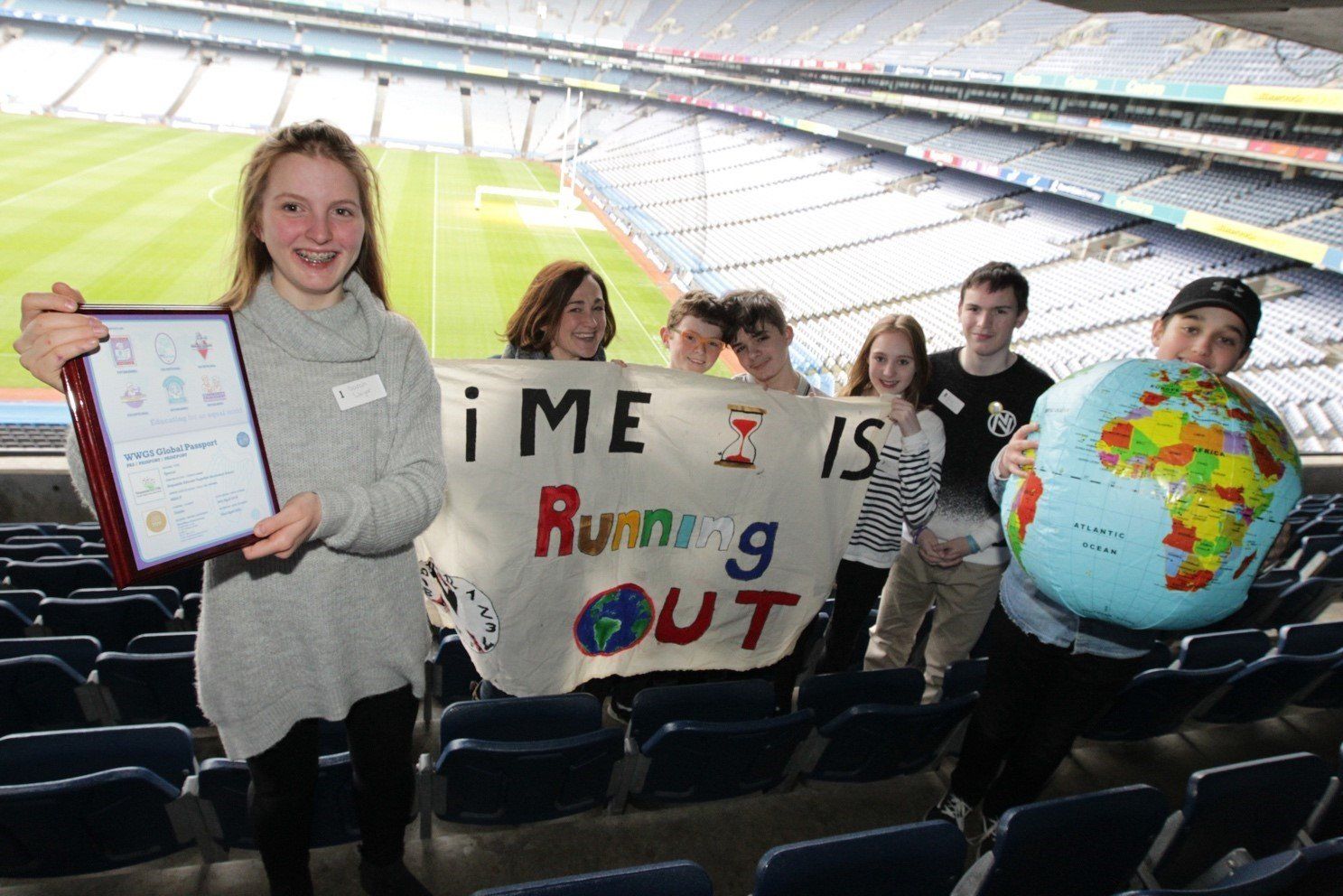This case study is from 2018. For the latest information on WorldWise Global Schools (WWGS) please consult their website: https://www.worldwiseschools.ie/
WorldWise Global Schools (WWGS) is Ireland’s national Global Citizenship Education (GCE) programme for post-primary schools. WWGS offers grant funding, training, events, resources and personalised support. Since its establishment in 2013, WWGS has worked with over 500 schools.
The
Global Passport Award, introduced in 2015, is a self-assessed and externally-audited quality mark which offers schools a framework to integrate GCE into their teaching and learning.
The Global Passport tracks progress across six categories: curriculum; extra-curricular activities; teacher capacity & engagement; student capacity & engagement; school leadership & policies; and community engagement. There are three tiers of award: Citizens’ Passport (emerging engagement in GCE), Diplomatic Passport (established engagement in GCE), and Special Passport (exceptional engagement in GCE).
The Global Passport has a dual purpose: it is an award scheme that recognises and rewards schools for quality GCE, and it is also a planning tool through which schools can chart a pathway for long-term engagement with GCE. For WWGS, the Global Passport is the ‘red thread’ running through the entire WWGS programme. Schools use the Global Passport to self-assess their GCE journey, to identify the positive steps their school is making towards global justice, and to identify areas for further learning and development. WWGS, in turn, uses Global Passport data to shape the content of their supports, including teacher CPD, resource development, annual student conference and school management symposium.
Tracking improvements in scores across the six categories enables WWGS to see how the Global Passport is making an impact on GCE capacity. This is particularly true in the area of school leadership & policies, which received comparatively low self-assessments in early Passport entries, and now is receiving stronger self-assessments as a result of targeted WWGS support in this area. The stronger self-assessments for school leadership & policies are backed up by concrete evidence in the Passport submissions, for example the number of school documents (school policies, mission statements etc.) that reference GCE.
Feedback from participants suggests that the Global Passport scheme is making an impact in schools through providing a tangible GCE presence (Passport banner, GCE displays, posters etc) which leads to increased interest in GCE. The Citizens Award is pitched at a very achievable level, which means that it can mobilise and motivate school communities that are relatively new to GCE. At the other end of the spectrum, the Special Award is pitched at a high level and can be used by schools as a long-term aspirational goal for a whole-school commitment to GCE.
There is evidence that the Global Passport programme is having an impact beyond the bounds of the WWGS programme. Schools have used their Global Passport data as evidence in Department of Education (DofE) evaluations, both at whole-school level and within individual subjects. This indicates that the Global Passport work carried out by teachers, school management and students is significant in terms of overall educational goals. Furthermore, the skills developed in the self-assessment process are transferable to other aspects of teaching and learning.
Overall, the Global Passport has integrated meaningful monitoring and evaluation (M & E) into GCE at post-primary level. Teachers, students and school management are on the ‘inside track’ of M & E; they work from their own unique starting points and are in charge of how their progress is tracked. In some schools, student committees have taken on the responsibility for Global Passport reporting, which provides a great opportunity for young people to build leadership skills and skills in reflection and self-assessment.
Irish Aid’s new Strategy for Global Citizenship Education 2021-2025 highlights the Global Passport and notes that Irish Aid ‘will examine how the Global Passport Award can be adapted for other sectors, such as primary and non-formal education sectors’ (p. 19). Thus the experience gained by WWGS over the six years of using the Global Passport will bring value to other sectors engaging with GCE.
Image:
- Stepaside ETSS's Sallie Ennis and Sarah Weijer presentation of a Special Global Passport with Aidan Clifford at the WWGS Annual Student Conference, Croke Park 2019. (main page)
- Stepaside students celebrate their Special Global Passport award at the WWGS Annual Conference at Croke Park 2019. (picture 1)
Credit: WorldWise Global Schools







